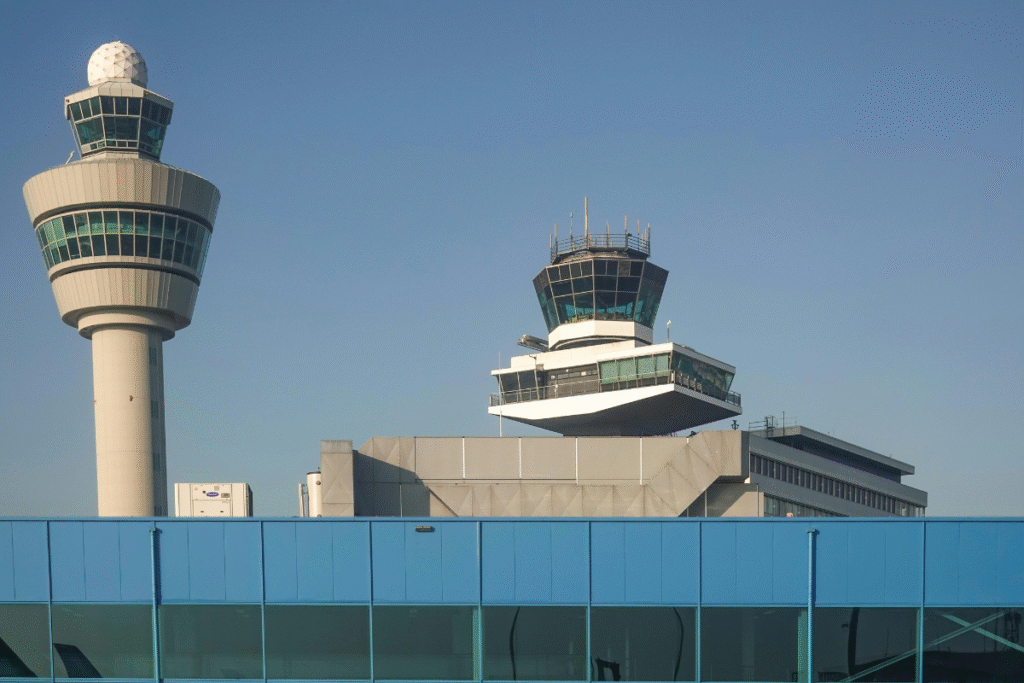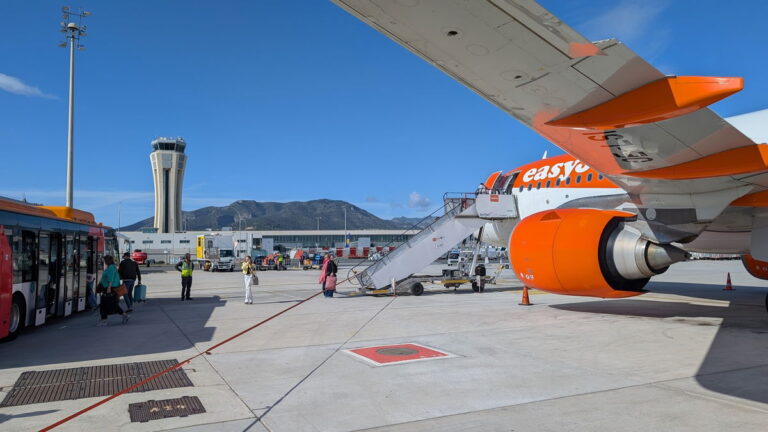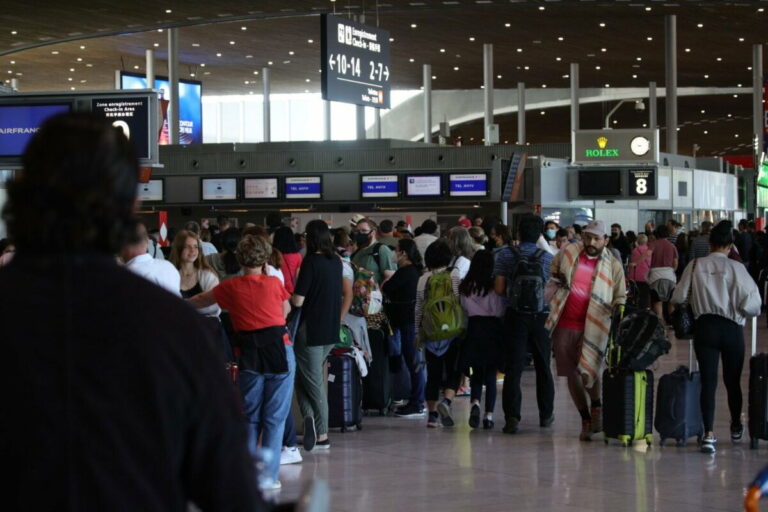
Control towers like these keep Europe’s skies flowing — until strikes bring it all to a halt. Credit: Magda Ehlers from Pexels via Canva.com
On July 3 and 4, France’s air traffic controllers are again walking off the job. This strike’s ripple effect goes well beyond France. It’s not just local flights getting hit—airspace over the country is where it hurts. That means delays as far out as Lisbon or Vienna. Even if you’re not headed to France, your plane might be flying over it. So yes, you might want to double-check your flight info, just in case.
Paris-Orly, Nice, Marseille, Lyon. Flights are being cancelled before boarding even opens. The French Aviation regulator has ordered airlines to reduce capacity by up to 50%. For many passengers, that means crowded gates, rerouted connections, or no flight at all. This is not another travel disruption; it’s the latest symptom of something bigger, with skies hitting a breaking point.
What’s being cut, and why France matters more than you think
On July 3 and 4, the French civil aviation authority (DGAC) has already asked airlines to cut flights by as much as 50% at Regional hubs like Marseille, Corsica, and Lyon, and around 25–30% at major airports including Paris-Orly and Toulouse.
France isn’t just grounding its own planes—it could mess with yours too. The country sits under a chunk of Europe’s busiest flight routes. That airspace? It matters.
- Even if your flight is skimming Europe—Barcelona to Berlin, Lisbon to Rome—it probably cuts through French skies.
- When French controllers clock off, those routes get choked. Some planes zigzag to reroute. Others? They don’t fly at all.
The reality of the situation is that the thousands of passengers who will never set foot in France are now being caught in the fallout. The connection windows shrink, and even some flights get cancelled altogether.
This is the invisible part of the story that strikes aren’t just affecting French airports, they’re slowing down the entire European Aviation grid. It’s happening right as millions of families, students, and seasonal workers head off for the busiest travel month of the year.
What happens if your flight gets cancelled
Let’s say you arrive at the airport to check your screen, and the flight is marked cancelled. And it’s all due to France’s Air Traffic Control strike, now what?
Here’s what you need to know: you are not entitled to compensation under EU law, but that doesn’t mean you’re out of options. Because air traffic control strikes are considered an extraordinary circumstance, they fall outside the scope of the EC261 compensation rules.
So if your flight is cancelled, or significantly delayed for more than 2 to 3 hours, your airline must offer you one of the following:
- A full refund (usually back to your original payment method)
- A rebooking on the next available flight, including on another airline if needed
- Hotel accommodation and meal vouchers if you’re stranded overnight
In practice, though, this can get messy. Some airlines may push you to take a voucher instead of cash. Others might offer rebookings days later, especially during peak summer congestion. That’s why travel experts recommend:
- Saving every receipt if you pay out of pocket for food or a hotel
- Using apps like FlightRadar or FlightAware to monitor your flight’s routing status (overflights matter now)
- Getting written confirmation of the cancellation reason, in case you need it for insurance
And if your airline leaves you in the dark? File a formal claim through the airline’s website — and if that fails, escalate to your national aviation regulator. You’re not powerless. But you will need to be patient.
European skies stretched thin.
Ryanair recently warned of record delays this summer. Their CEO highlighted the chronic shortage of air traffic controllers not just in France but also in the UK, Germany, and even Ireland.
The statistics back this up, with Europe operating 5% more flights than last summer, but with many ATC centres still understaffed and even relying on overtime to stay functional.
And it’s not just a French problem either.
- Spain has faced intermittent ATC walkouts.
- The UK’s digital tower rollout has hit bottlenecks.
- Eurocontrol — the agency responsible for coordinating cross-border traffic — has identified July and August as high-risk months for disruptions in the flow of traffic.
So, even if this week’s delays are resolved by the weekend, the warning still stands that Europe’s Aerospace industry takes just one strike or one failure to throw it all off balance.
Flying in Europe, expect the unexpected.
For most travellers, the summer flight is simple: you book, you pack, you check in online. But in 2025, between the strikes, the Staffing gaps, and sky-high traffic. Europe’s airspace is running hot and running thin.
Even when you’re not flying to France, you’re still flying through it, so when your airline says that your route is confirmed, it can disappear overnight because of another country’s tower that blinked.
The issue is that Europe’s flight system was built for a different decade, one with fewer passengers, more predictability, and less environmental and political pressure. With France’s strike potentially lasting into the weekend, the next disruption is likely to be loading.
this means planning smarter to book early flights, leaving buffers for connections, and expecting three routing options as part of your journey. Whether it may be due to a heatwave, a staff shortage, or even a national strike, flying in Europe this summer is about what breaks along the way and not where you’re going.







